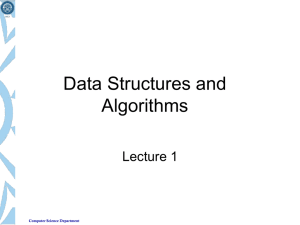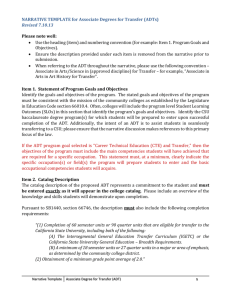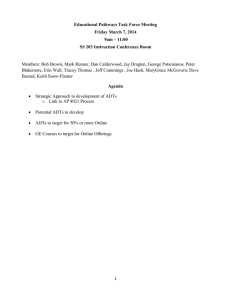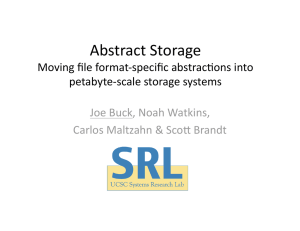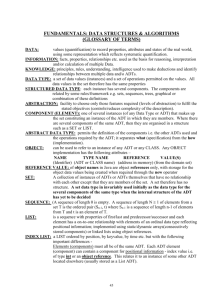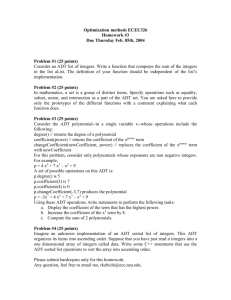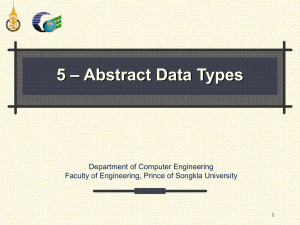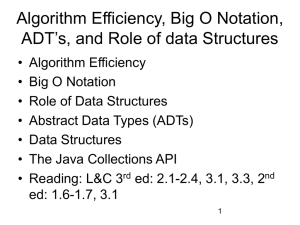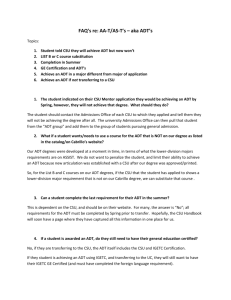QSSC13-P6 ADT Approvals
advertisement
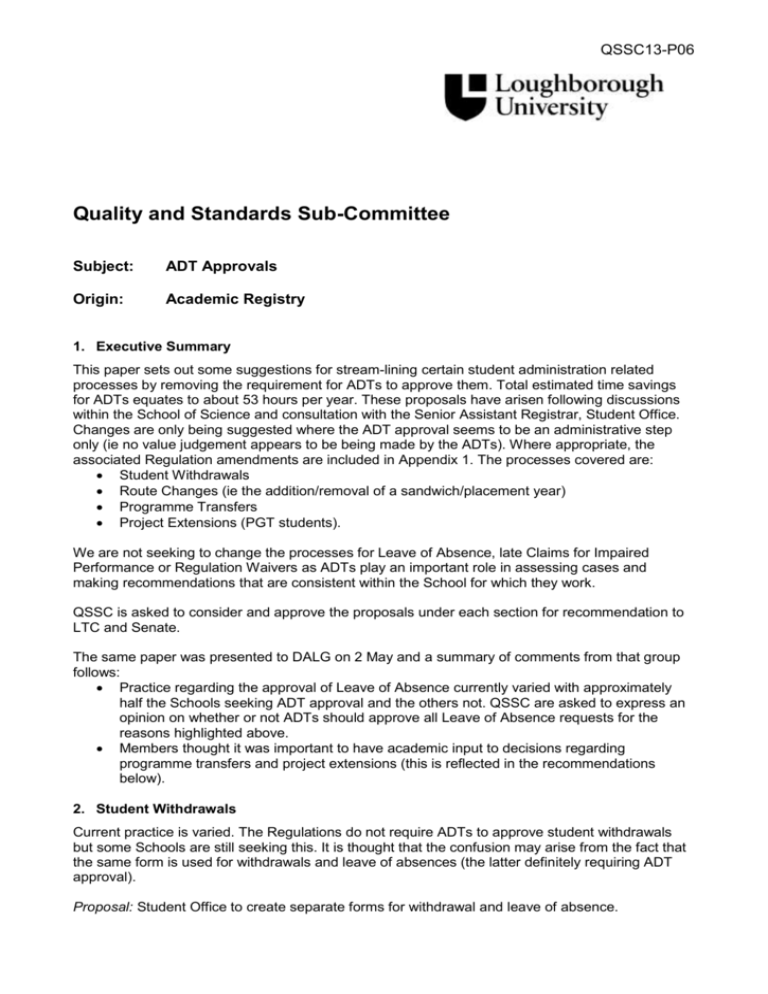
QSSC13-P06 Quality and Standards Sub-Committee Subject: ADT Approvals Origin: Academic Registry 1. Executive Summary This paper sets out some suggestions for stream-lining certain student administration related processes by removing the requirement for ADTs to approve them. Total estimated time savings for ADTs equates to about 53 hours per year. These proposals have arisen following discussions within the School of Science and consultation with the Senior Assistant Registrar, Student Office. Changes are only being suggested where the ADT approval seems to be an administrative step only (ie no value judgement appears to be being made by the ADTs). Where appropriate, the associated Regulation amendments are included in Appendix 1. The processes covered are: Student Withdrawals Route Changes (ie the addition/removal of a sandwich/placement year) Programme Transfers Project Extensions (PGT students). We are not seeking to change the processes for Leave of Absence, late Claims for Impaired Performance or Regulation Waivers as ADTs play an important role in assessing cases and making recommendations that are consistent within the School for which they work. QSSC is asked to consider and approve the proposals under each section for recommendation to LTC and Senate. The same paper was presented to DALG on 2 May and a summary of comments from that group follows: Practice regarding the approval of Leave of Absence currently varied with approximately half the Schools seeking ADT approval and the others not. QSSC are asked to express an opinion on whether or not ADTs should approve all Leave of Absence requests for the reasons highlighted above. Members thought it was important to have academic input to decisions regarding programme transfers and project extensions (this is reflected in the recommendations below). 2. Student Withdrawals Current practice is varied. The Regulations do not require ADTs to approve student withdrawals but some Schools are still seeking this. It is thought that the confusion may arise from the fact that the same form is used for withdrawals and leave of absences (the latter definitely requiring ADT approval). Proposal: Student Office to create separate forms for withdrawal and leave of absence. 3. Programme Transfers Regulation IX requires academic approval for programme transfers. “7. Students seeking to transfer programme must first obtain permission, in writing using the appropriate form, from the Dean of School responsible for the intended new programme.” For the purpose of this Regulation, “Dean of School” can be any nominee of the Dean of School agreed with the Academic Registry. Currently, ADTs are routinely understood to be the Dean’s nominee. However, feedback from the School of Science is that the ADT (Acting) is not taking an value judgement on Programme Transfers and signs any that are presented to her. This suggests that the academic decision is being taken elsewhere in the School and is potentially an area where ADT time could be freed up. For context, there are around 900-1000 programme transfers processed each academic year. Assuming the ADT time commitment on each transfer is approximately 2 minutes, this could represent a time saving of about 2000 minutes (just over 33 hours) of ADT time per year. Proposal: QSSC to discuss and agree who the appropriate academic authority for approving Programme Transfers should be within the School. A process for ensuring that the relevant people are notified to Student Office would need to be agreed. 4. Route Changes Route changes are currently viewed as Programme Transfers and therefore require ADT approval (see Section 3). However, there is not usually an academic decision required as the student either wants to do/is able to secure a placement (if one is available) or not. The only exception to this is where the placement year is compulsory (e.g some programmes in the School of Business and Economics) and in these cases academic approval for the transfer would still be required (see section 3). For context, there are around 1000-1100 route changes processed each academic year. Assuming the ADT time commitment on each transfer is approximately 1 minute, this could represent a time saving of about 1000 minutes (just over 16.5 hours) of ADT time per year. Proposal: Student Office to create a separate form for route changes. Schools will be asked to indicate where the placement is compulsory and only in these cases will “academic approval” be required. 5. Project Extensions (PGT) Regulation XVII requires academic approval for PGT Project Extensions. “10. On receipt of an extension request in accordance with the provisions of paragraph 9 hereof the relevant Dean of School shall, in consultation with the Responsible Examiner for the module, determine whether an extension should be permitted and if so what period such an extension should cover, and shall inform the student of the outcome of the extension request no more than ten working days after the receipt of the request for an extension.” For the purpose of this Regulation, “Dean of School” can be any nominee of the Dean of School agreed with the Academic Registry. Currently, ADTs are routinely understood to be the Dean’s nominee. However, feedback from the School of Science is that the ADT (Acting) is not taking an value judgement on Project Extensions and signs any that are presented to her. This suggests that the academic decision is being taken elsewhere in the School and is potentially an area where ADT time could be freed up. For context, there are around 120 project extensions processed each academic year. Assuming the ADT time commitment on each extension is approximately 2 minutes, this could represent a time saving of about 240 minutes (4 hours) of ADT time per year. Author: Miranda Routledge/Sandie Dann Proposal: QSSC to discuss and agree who the appropriate academic authority for approving Project Extensions should be within the School. A process for ensuring that the relevant people are notified to Student Office would need to be agreed. Author: Miranda Routledge/Sandie Dann
